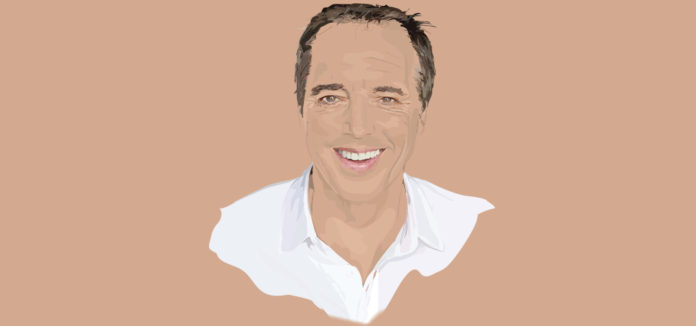For every young person, woman and man, world traveler or homebody, who needs brushing up on their manners, this is the perfect gift. This book presents the importance of values in a witty and knowledgeable manner from the creative mind of Jeremiah Tower, James Beard award winning author and chef and classic cartoon style illustrations by Libby VanderPloeg. This book is for everyone for any occasion.
Why to Care About Sharing
Does chocolate taste better when shared? Absolutely, and research backs it up. Sharing an experience with another intensifies it. According to the study’s lead researcher, Erica Boothby of Yale University:
When people are paying attention to the same pleasant thing, whether the Mona Lisa or a song on the radio, our research shows that the experience is much more pleasurable.
Boothby discovered the power of sharing when participants in a study rated chocolate as tasting better when they ate it at the same time as another, rather than when they ate it by themselves. Sharing, it seems, shapes perception.
Before you run to a friend with a box of chocolates, consider this: the concept operates with and strangers as much it does with loved ones. In Boothby’s words:
When people think of shared experience, what usually comes to mind is being with close others, such as friends or family, and talking with them. We don’t realize the extent to which we are influenced by people around us whom we don’t know and aren’t even communicating with.
Connection amplifies experience. So the next time you watch a movie, go to a museum or eat a piece of chocolate, check your impulse to dive into your smartphone because you’re effectively “unsharing” a moment. As Boothby explains:
We text friends while at a party, check our Twitter feed while out to dinner, and play Sudoku while watching TV with family — without meaning to, we are unsharing experiences with the people around us. A pleasant experience that goes unshared is a missed opportunity to focus on the activity we and others are doing and give it a boost.
The old saying rings true:
The best things in life are meant to be shared.
I wish you all the best,
Dr. Samantha Boardman
Love & Compassion: The Secrets to Self-Control
With all the focus on strategies to resist the proverbial marshmallow and boost self-control, we may be missing something right under our noses. David Desteno, PhD, author and professor of psychology at Northeastern University, proposes a seemingly counter-intuitive approach to building self-control. Instead of demonizing emotion, he argues that some emotional responses such as gratitude, love and compassion may be the most powerful weapons we have against temptation.
According to his research, socially oriented emotions like gratitude, love and compassion greatly enhance self-control and facilitate delayed gratification.
As he writes in The Pacific Standard:
…There are two routes to self-control: cognitive strategies that depend on executive function, willpower, and the like; and emotional strategies that rely on the cultivation of specific feelings…You might prevent yourself from making an impulse purchase by placing your money in an account with stiff penalties for early withdrawal…Or you might do the same by taking a few minutes to stop and count your blessings.
Other research supports this approach. Kurt Gray, a researcher at Harvard University, found that after people donated money to charity or even thought about helping another person they were able to hold up weights longer than those who didn’t engage in pro-social thoughts or actions.
According to Gray, helping others heightens willpower and self-control. As he suggests:
Perhaps the best way to resist the donuts at work is to donate your change in the morning to a worthy cause.
By doing good and by cultivating positive emotions, we arm ourselves against temptation and immediate gratification. Dr. DeSteno sums it up:
We can’t just exert self-control by willing ourselves to resist the first marshmallow or averting our eyes from it; we have to be grateful that someone’s offering it to us in the first place.
I wish you all the best,
Dr. Samantha Boardman
Turning Should into Will
I should have done that differently. I should do that tomorrow.
Ever notice how much “shoulds” there are in your life? When talking about the past, ‘shoulds’ are filled with regret (I should have done that differently), and take their toll. When thinking about the future, ‘shoulds’ hang over us like heavy clouds bursting with pressure, obligation and resentment.
The moment you hear yourself say ‘should,’ or even think it, pause, reflect and rephrase. Instead of ‘should’ try:
Next time I will…
I plan to…
I look forward to…
Make decisions based on what you want and according to your values, not self-imposed measures of how you should be spending your time and energy.
Stop ‘should-ing’ on yourself and others. I think of should as a four letter word, so banish it from your vocabulary.
Be yourself; everyone else is already taken.
-Oscar Wilde
I wish you all the best,
Dr. Samantha Boardman
Looking for Purpose? Ask Yourself These 5 Questions
Ralph Waldo Emerson once wrote:
The purpose of life is not to be happy. It is to be useful, to be honorable, to be compassionate, to have it make some difference that you have lived and lived well.
A scientific addendum to that should be that if you live with purpose, you are more likely to be happy.
Study after study shows the importance of having a sense of purpose. Having a direction and an overarching meaning in life helps you live longer, buffers against setbacks, and is linked with wellbeing.
In theory this is great, but in reality most people aren’t born knowing what they want to do with their lives. An article by author Mark Manson highlights the problem and offers a solution:
Chances are you have no clue what you want to do. It’s a struggle almost every adult goes through several times. “What do I want to do with my life?” “What am I passionate about?” Part of the problem is the concept of “life purpose” itself. The idea that we were each born for some higher purpose and it’s now our cosmic mission to find it.
Manson recommends re-framing the question and thinking about purpose in a more manageable way. So when people ask, “What should I do with my life?” they should really ask “What can I do with my time that is important?”
He lists five questions to help figure out what matters most to you and how to add more meaning to your life:
1. What are you willing to struggle for?
Fulfillment involves effort, trial-and-error, failure and learning.
2. What did your eight-year-old self love doing?
Remember the joy of doing things for the fun of it? No rewards, no impressing anyone, just for yourself.
3. What makes you forget to eat?
When are you are so immersed in an activity that time passes without you realizing? Psychologist call this flow.
4. How are you going to save the world?
You may not end world hunger, but you can make a difference. Instead of focusing too much on finding yourself, lose yourself in something larger.
5. If you knew you were going to die one year from today, what would you do and how would you want to be remembered?
How do you really want to spend your time? What do you want your legacy to be?
Manson concludes that discovering one’s purpose in life essentially boils down to finding those one or two things that are bigger than yourself and bigger than those around you. And to find them you must get off your couch and act, take the time to think beyond yourself, to think greater than yourself, and paradoxically, to imagine a world without yourself.
I wish you all the best,
Dr. Samantha Boardman







